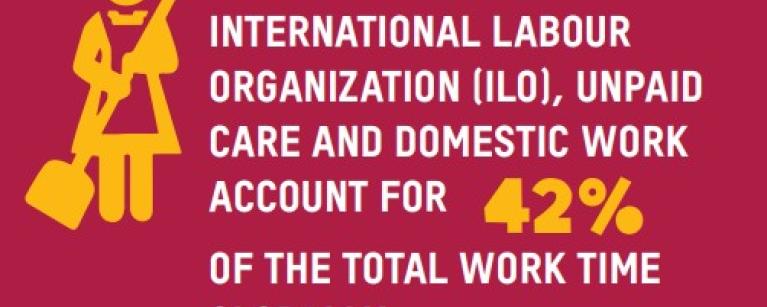The Private Sector Rapid Care Analysis (PS RCA) provides a comprehensive examination of how Unpaid Care and Domestic Work (UCDW) impact the operations, productivity, and workforce dynamics within Kenya’s Impact Small and Medium Enterprises (ISMEs). UCDW, predominantly carried out by women, remains largely undervalued yet essential for the functioning of both households and businesses. This analysis aims to bridge the gap between UCDW responsibilities and formal workplace demands, offering actionable insights for ISMEs, policymakers, and private sector stakeholders to create more supportive environments for all workers. A Private Sector Rapid Care Analysis toolkit (PS RCA) is a rapid process for businesses and workers to understand the heavy responsibility and long hours of UCDW. This report has examined more broadly the intersections between unpaid and paid work. The overall objective of the assignment was to emphasize the need for a comprehensive approach to achieving a fair work-life balance that goes beyond just providing living wages. Specific objectives included raising awareness within ISME management on the significance of UCDW, sensitizing private sector workers to the challenges associated with it, and promoting work place policy interventions that recognize and encourage the redistribution of care responsibilities. The analysis also seeks to capture practical learnings from four targeted ISMEs in Nairobi, Machakos, Kericho, and Bungoma, fostering actionable recommendations that align with Sustainable Development Goals (SDGs), particularly Goal 5 on gender equality and Goal 8 on decent work. A qualitative, participatory approach was adopted, combining focus group exercises, time-use assessments, and direct interviews with workers and management across various ISMEs. This methodology offered nuanced insights into the daily lives of workers, particularly women, whose disproportionate share of UCDW obligations often interferes with their professional roles. By observing and analyzing UCDW’s direct impact on productivity, workplace engagement, and overall well-being, the study identifies patterns of strain, high absenteeism, and mental stress among workers balancing care responsibilities with paid employment. EXECUTIVE SUMMARY Across ISMEs, UCDW emerged as a critical but underappreciated factor affecting women’s economic empowerment, workers’ health, mental well-being, and job satisfaction. For instance, women workers face increased time loads, stress, and physical fatigue due to their caregiving roles, with limited support mechanisms in place at their workplaces. This imbalance creates barriers to women’s full participation in the workforce, reinforcing gender inequalities and reducing productivity. Key observations include:
• Gender Disparities in Care: Women spend significantly more time on UCDW than men, limiting their ability to engage in paid work, pursue career advancement, and achieve financial independence.
• Health and Well-being Impact: Workers, particularly women, report that the physical and mental demands of UCDW reduce their productivity and focus, leading to higher absenteeism and turnover.
• Enterprise Challenges: ISMEs lack structured policies to support care work, making it difficult for employees to balance personal responsibilities with professional commitments. This gap underscores the need for ISMEs to adopt flexible policies that consider family and care responsibilities.
• Existing Support Policies: Some ISMEs have implemented positive initiatives, such as flexible working hours, maternity and paternity leave, and on-site childcare, but these remain limited in scope and accessibility to the workers.
• Limited gender training: The workers and management reported to either having not had or limited scope of the gender training. Further it was evident that there was limited knowledge and skills to relate the work place environment and UCWD. The report provides a range of recommendations for both ISMEs and policymakers to support UCDW better and reduce its impact on workforce participation:
• Workplace Policy: ISMEs should introduce and expand family-friendly policies, such as flexible working hours, leave provisions for caregiving, and workplace-based childcare support, which have proven effective in reducing absenteeism and turnover Awareness and Training: Management should be trained to recognize the value of care work and the challenges faced by workers with family responsibilities, thereby fostering a more inclusive and supportive workplace culture.
• Incentives for UCDW-Friendly Policies: Government and industry associations could incentivize businesses to adopt care-sensitive policies through tax breaks, subsidies, or recognition programs, encouraging broader participation across the private sector.
• Investment in Community Care Infrastructure: Collaborative efforts with civil society, private sector and public institutions to develop accessible, affordable childcare and eldercare facilities. This can significantly alleviate the UCDW responsibilities on workers hence increase productivity and less mental health issues.
• Mainstreaming of Care work: The mainstreaming to be anchored at the management level as the champions of the care economy with the Human Resource Unit as the focal point. This PS RCA underscores the pivotal role that UCDW plays in shaping economic outcomes and workforce well-being. ISMEs have an essential role in challenging traditional norms around caregiving and promoting gender equality in the workplace. The study highlights systemic challenges such as entrenched gender roles, cultural biases, and a lack of care infrastructures, which continue to impede progress in achieving workplace gender equity. To ensure lasting impact, ISMEs and policymakers must commit to continuous improvement in care-responsive policies and infrastructure investments. This commitment requires sustained advocacy, resources, and a willingness to challenge traditional practices. Private sector engagement in UCDW solutions directly supports Kenya’s broader development objectives as they employ the majority of the workforce. As ISMEs implement the recommendations, they will not only drive positive change within their organizations but also contribute to Kenya’s inclusive economic development.
Download! and read full report.
